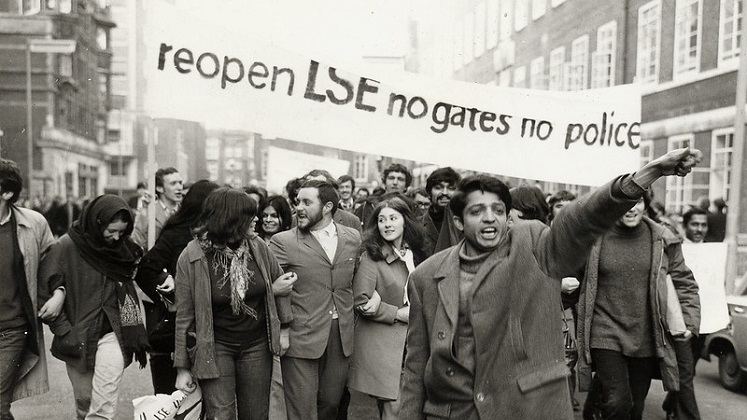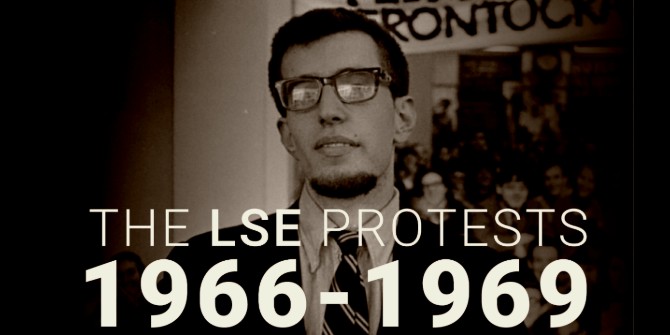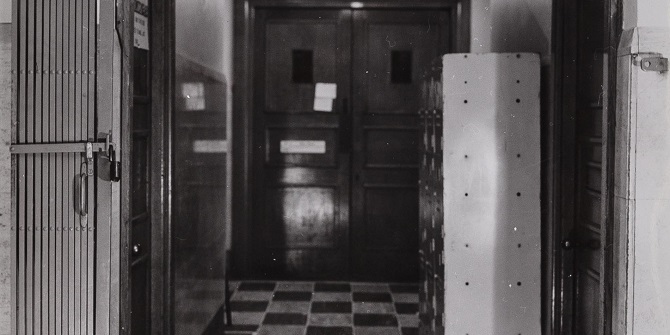On the weekend of 25-27 October 1968 LSE’s buildings were occupied by students in support of the Vietnam Solidarity Campaign’s demonstration against US involvement in Vietnam. LSE Archivist, Sue Donnelly, recalls the events of the weekend.
In October 1968 the Vietnam Solidarity Campaign organised a large demonstration through London, finishing at Hyde Park. 25,000 people were estimated to have taken part in the demonstration which included handing in a petition to 10 Downing Street.
On 17 October LSE Students’ Union (LSESU) discussed opening the School’s buildings for sanctuary, medical aid and political discussion during the demonstration. The President of the Students’ Union, Colin Crouch, thought this was unlikely to happen but the motion in favour of opening the School was passed. On 23 October a second, larger LSESU meeting, spread over three rooms, discussed occupying the buildings and this time the motion was defeated by a majority of 60. However the LSESU Honorary President Meghnad Desai requested a recount and on that occasion the motion was defeated by just six votes. At this time the National Union of Students had a “no politics” clause in its constitution and the LSESU President, Colin Crouch, declared that the LSESU was neutral on the question of the demonstration.
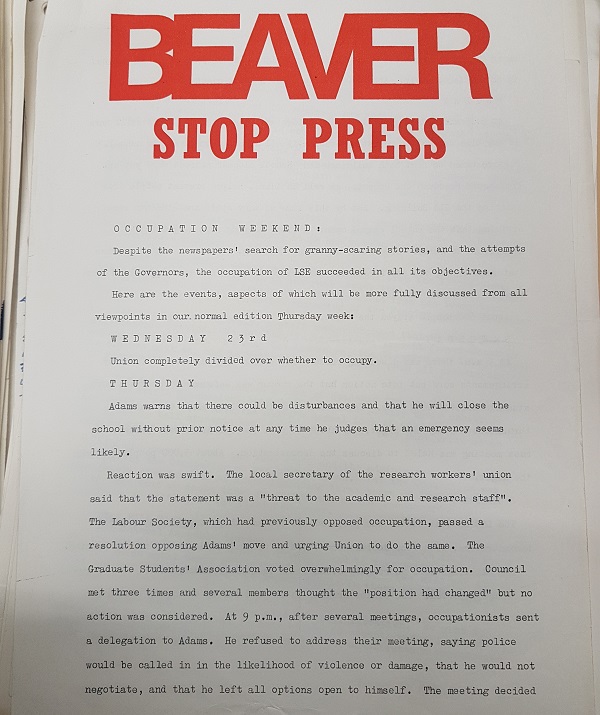
The School Governors, hearing about the proposed occupation, were concerned that the LSESU would be unable to control any non-LSE visitors to the campus. The Director, Walter Adams, issued a statement that School buildings would be closed on Saturday 26 and Sunday 27 October.
Unfortunately the Director’s statement nudged student opinion towards supporting the occupation and on the Thursday evening after contacting the Director 200 people remained in the building overnight. On Friday 25 October, although an attempt was made to put up “School closed” signs, so many staff and students were arriving that the buildings remained open and The Beaver estimated that 600 people occupied the buildings over Friday night.
On the Saturday there were rumours that the police would enter the building, but this was unlikely as the police told the Director that policing the anti-Vietnam War demonstration meant there would be few resources available to deal with other incidents. But Adams stressed in a statement to academic staff: “It had never been my intention to seek police assistance to eject peaceful “sitters-in”, and I have taken no action to this end”.

Throughout the Saturday as more students arrived there were seminars, films and music. Some students had invited members of Camden Poster Workshop to join the occupation. They arrived in a van on Friday evening unloading a screen print table and other equipment, turned the refectory into a print studio and quickly began printing posters.
On the Sunday a medical centre was set up with four doctors supported by 20 medical students and nurses. The Beaver reported that the centre had dealt with 35 injured demonstrators.
The occupation was managed through a Committee of Public Safety and the Occupation Services Group dealt with the practicalities of sleeping arrangements – on the 4th floor of St Clements Building, the bar and concourse area and graduate common room and cleaning up – brooms and rubbish sacks were to be kept under the clock by the Old Theatre, in the Old Building. Students were advised to bring their own food but a small stall sold sandwiches, fruit and cold drinks with proceeds going to War on Want and the Emergency Fund for Vietnam. According to The Beaver the only damage reported was one broken window.
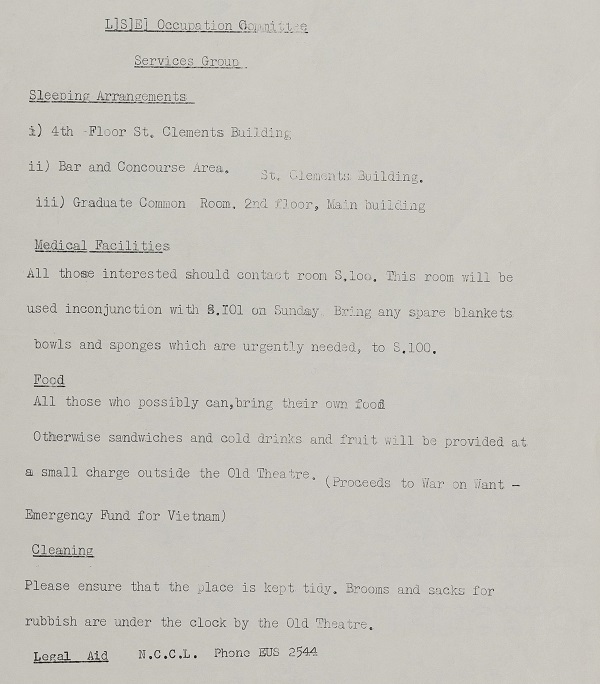
On the Sunday following the occupation the students left the building peacefully – indeed Colin Crouch claimed that the buildings were vacated in a cleaner state than when they had been occupied. The following week the LSESU meeting passed a motion of censure against the LSESU Council and the President, Colin Crouch, resigned along with four other members of the Council. LSE’s Governors, led by their Chairman, Lord Robbins, issued a statement aimed at members of faculty who had supported the students – but decided to take no action against them. 77 staff members responded with a statement, forwarded by Professor David Glass and Professor John Griffiths noting that Article 28 of the School’s Articles of Association stated that no member was to be punished for expressing their opinions on any subject.
The occupation had passed off peaceful – but changes in the LSE Students’ Union meant there was more conflict ahead.
Read the rest of the series in The LSE Troubles
Visit LSE 1969, 18 February-15 March 2019, a free exhibition in the Atrium Gallery.


